Wednesday 8th May - Celebrating Spring with Birdsong and Bee-Friendly Plants
Class Notes... A Beautiful Poem
I'm so enjoying spring this year! I want everyone to experience it as fully as possible - don't let it pass you by. As we stand on the edge of the tipping point to save the Earth from the damage done by mankind, I feel that Mother Nature is vibrantly and exuberantly showing us all that we could lose.
I'm reading this poem in my classes this week. It resonates deeply with me and I hope it stirs a longing in you help to repair the Earth and make some lifestyle changes to put you back in sync with the natural world.
On A May Evening by Lucy Burrow
Daylight's twinkling eye now firmly shuts
And busy bird's nestmaking labours still.
Now all the land takes diff'rent hues of night
And hungry owl-call tones are heard to shrill;
Then, out across the lonely darkness, faint.....
At first, then louder, roaring wild.....
I hear the sea, a-calling me to play!
Like holidays, when I was just a child
And, musing in my middle years, I smile
For, now I live where holidays were spent
And take for granted gifts of sea and sun and air
Which, as a child for just two weeks were lent...
And, in that moment, listening to the night,
A voice within me now begins to sing
A song of thanks for riches fair as these
That gold and silver riches cannot bring.
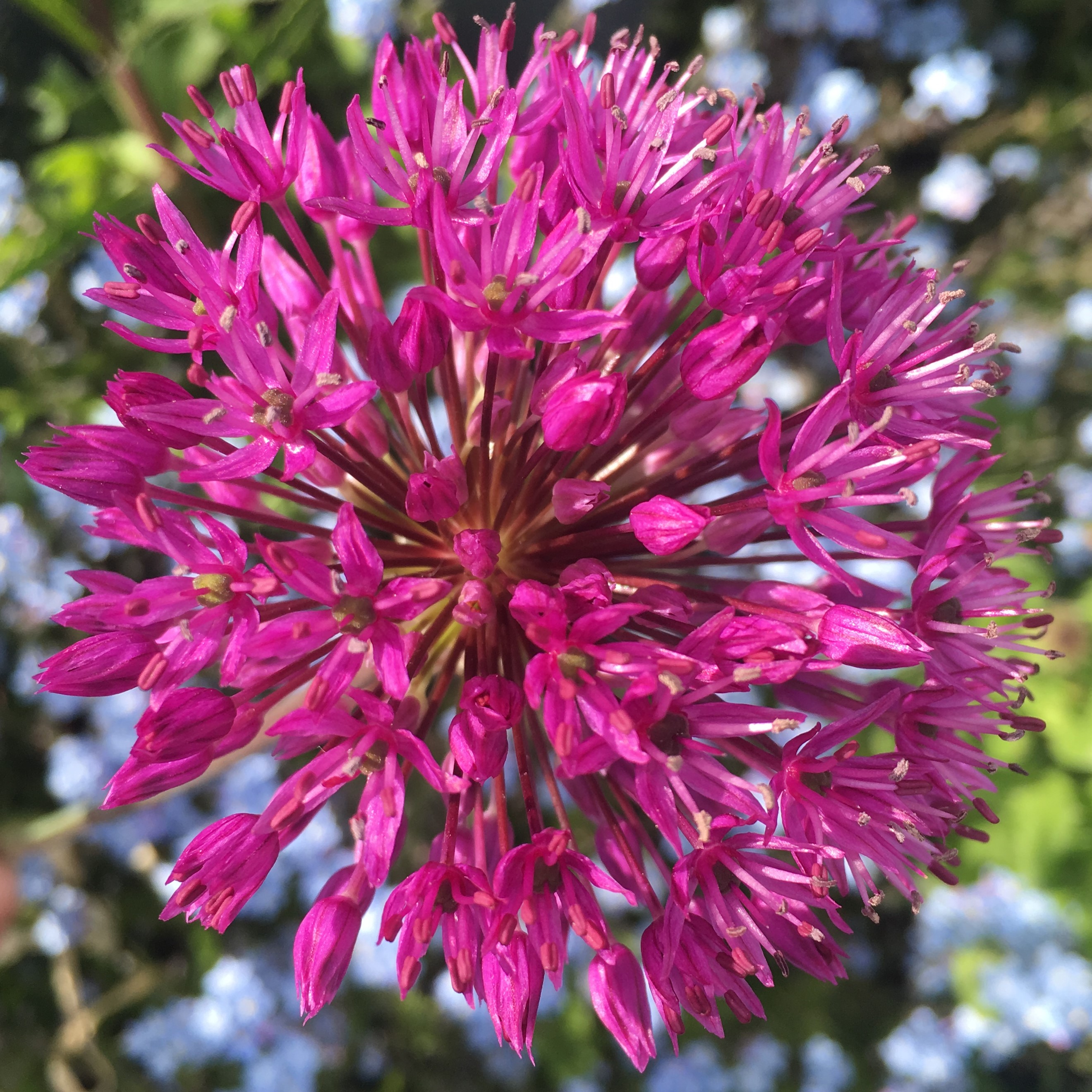
The first allium flower is out in my garden -
but it isn't really just one flower but a sphere of lots and lots of tiny ones
This Week's Mother Nature's Magic... 5 Bee-Friendly Perennials to Plant Now for Summer Flowers
In my quest to make my small back garden more inviting to bees and other pollinating insects I'm adding some long-flowering perennials. Perennial plants grow up in the spring, flower and die back in the winter and then do the same thing again, regrowing year after year. They're really good value and easy to look after - generally only requiring a bit of a cut back and tidy up in late winter/early spring. I've been sowing some seeds for easy annuals too (plants which grow from seed, flower, set seed and die all within one year) and I wrote a blog post about my favourites some time ago - click HERE to take a look.
Bees need a variety of flowers to provide them with nectar and pollen throughout the year. Nectar contains energy-giving sugar and pollen contains protein and oils, and they'll need some water too, so please give them a shallow dish with some large pebbles placed in it so they can land, drink and take-off again easily.
Here are my top 5 easy and long-flowering summer perennials to keep the bees buzzing happily in your garden:
1. Lavender
I have some huge lavender bushes in my garden and they are always completely covered with bees for many weeks. If you plant them in a sunny, dry place and trim the flower stalks back when they've finished flowering they'll reward you for years. If you buy a few different varieties they will flower at slightly different times which will extend the time the bees can feed from them.

2. Oregano (Origanum vulgare) or you can plant Marjoram which is very similar
This little plant has the added advantage of being a tasty herb so you can cut the leaves to use in the kitchen too. It's readily available in the garden centre quite cheaply at the moment so buy a few - the bees will love its pinky-purple flowers.
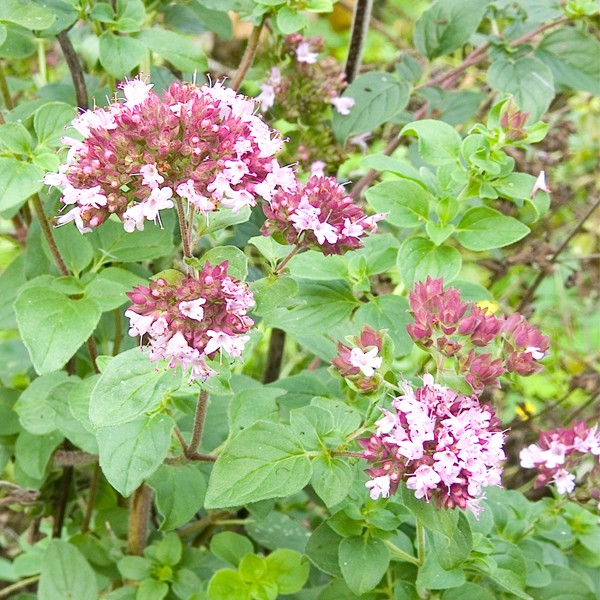
3. Sedum (recently had a name-change to Hylotelephium
Also known as the ice plant, this flowers late in the summer when lots of other flowers are finished. It is very drought resistant, likes to live on a poor soil in a sunny spot and butterflies love it too. I'm going to plant lots of these in my very dry and sunny front garden.
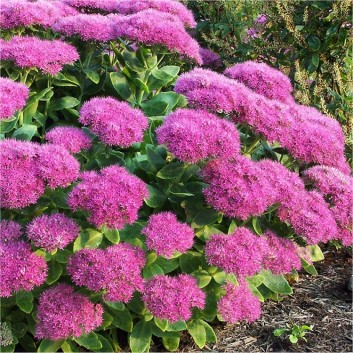
4. Achillea
These plants come in a variety of colours and have large flat 'plates' of flowers for bees to feed from. They have lovely ferny foliage, enjoy a sunny position and grow quite tall so are good to put at the back of the flower bed.
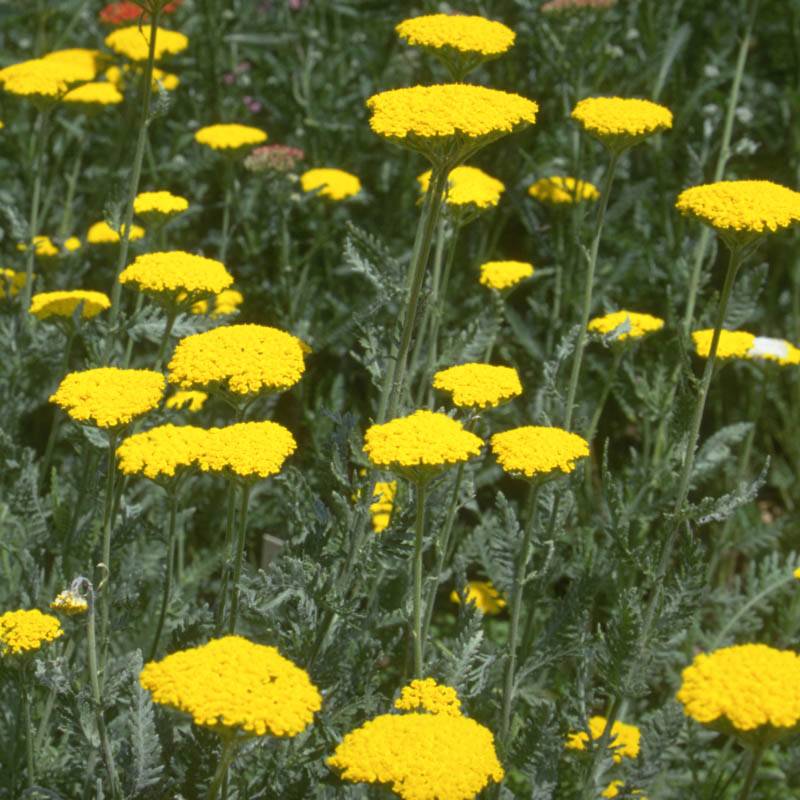
5. Any plant from the Scabious family (also known as pincushion flowers)
I have some clumps of Knautia (pink and red flowers) and Scabious (blue and purple flowers) in my garden. They are very similar and from the same family and the bees love both of them. They are really easy plants to look after - the larger varieties might need some support and they just need a tidy up in late winter/early spring.
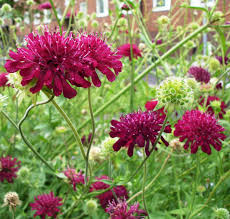
Knautia
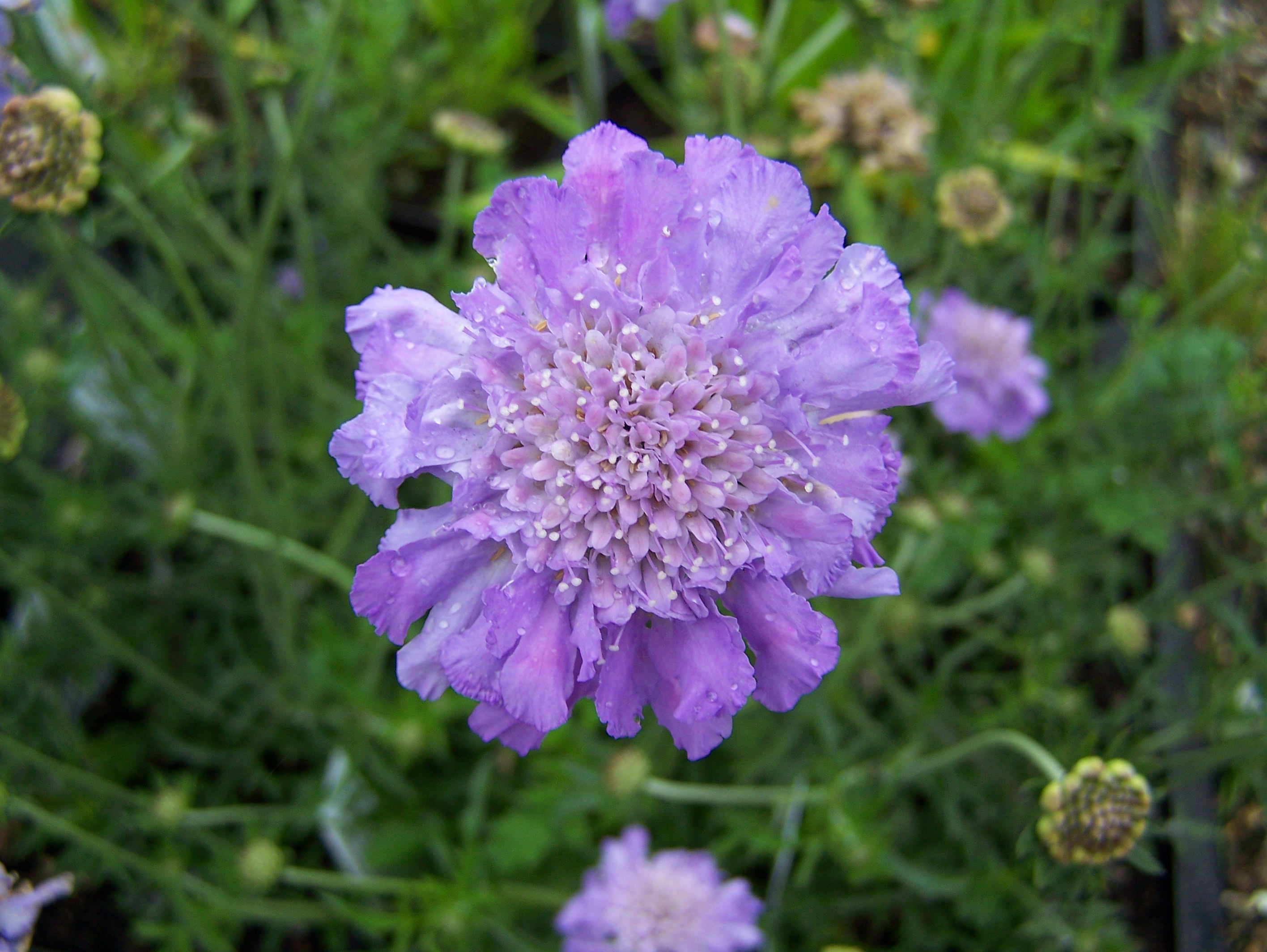
Scabious
If you get on down to the nursery or garden centre and pick up some of these plants the bees are sure to be delighted with the feast you have provided and you can have some magic moments studying and identifying the different types. Did you know there are 250 different species of bee in the UK?! I had no idea there were so many but, with my new-found interest in these fascinating creatures, I'm learning lots about them and will share some more interesting facts with you here on the Blog next week.
This Week's Recipe... Vegan Lemon Cake
I fancied a little something sweet with my afternoon cuppa yesterday and this was just right. There's no egg or butter in it but it was deliciously light and fluffy and, of course, amazingly easy to make.
You will need:
100ml vegetable oil, plus extra for the tin
275g self-raising flour
200g golden caster sugar
1 tsp baking powder
1 lemon, zested and the juice of half of it 170ml cold water
For the icing: 150g icing sugar
juice of half a lemon
And here's how to make it:
Heat the oven to 200C/180C fan/gas 6.
Oil a 1lb loaf tin and line it with baking parchment.
Mix the flour, sugar, baking powder and lemon zest in a bowl.
Add the oil, lemon juice and 170ml cold water, then mix until smooth.
Pour the mixture into the tin.
Bake for 30 mins or until a skewer comes out clean.
Cool in the tin for 10 mins, then remove and transfer the cake to a wire rack to cool fully.
For the icing, sieve the icing sugar into a bowl, mix in just enough lemon juice to make an icing thick enough to pour over the loaf (if you make the icing too thin, it will just run off the cake).
Leave to set for a while before serving.
This Week's Musical Offering... Singtree by Solar Quest
I love the chilled rhythm of this track - it's hypnotic and would be good to accompany some slow, easeful rounds of Sun Salutation
This Week's Video... Let Nature Sing
From the RSPB, this beautiful, evocative and sad video highlights the demise of our native birds with birdsong and the most wonderful hand-puppetry...
Until next time, enjoy being outdoors and seeking out the magic...






